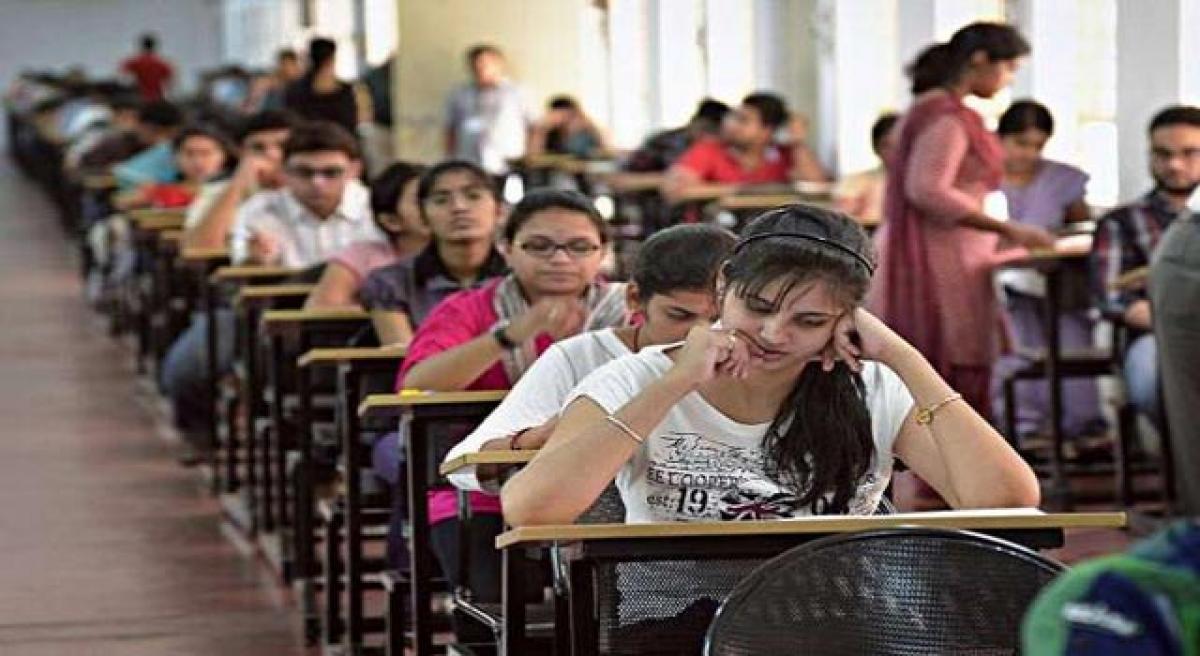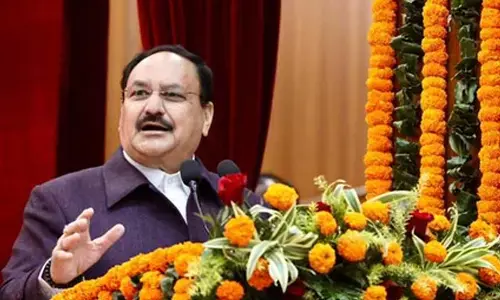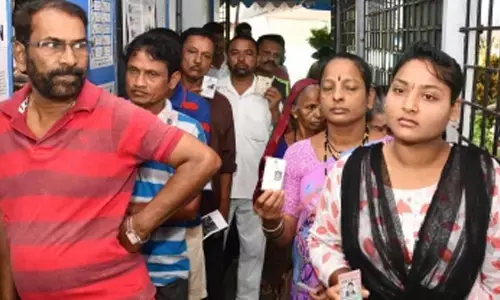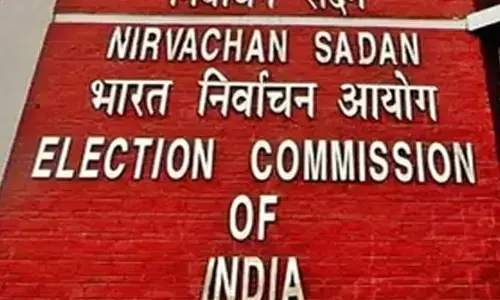Testing times for academics to end

One of the significant reforms in higher education proposed in the Central Budget for 2017-18 pertains to the establishment of a National Testing Agency (NTA) as an autonomous and self-sustained premier testing organisation to conduct all entrance examinations for higher educational institutions in the country.
One of the significant reforms in higher education proposed in the Central Budget for 2017-18 pertains to the establishment of a National Testing Agency (NTA) as an autonomous and self-sustained premier testing organisation to conduct all entrance examinations for higher educational institutions in the country. It is expected that this new agency would relieve the institutions like CBSE, AICTE and NCTE of such duties and make them focus more on academics.
It is a matter of gratification that wisdom has dawned finally on the Centre. It is very much true that these national monitoring agencies are excessively bogged down with non-academic issues, relegating to the background their primary job of establishing academic standards concerning their discipline. A step in the right direction is the conduct of NEET examination for providing a level-playing field for aspirants of medical education.
Students, parents and public are fed up with the poor organising abilities of the state departments of education in terms of quality and malpractices. Much of the precious time of the civil administrators is also consumed in the process.
As a matter of fact, there are already independent agencies like National Board of Examinations (NBE), which is entrusted with the conduct of eligibility tests for entry into Post Graduate Medical courses under the Ministry of Health, and the Centre for Testing and Evaluation (CT&E) under the Ministry of Human Resources Development for determining the language competence of learners at different levels of education. It is, therefore, to be presumed that the purview of the NTA would extend to all the disciplines.
Going into retrospect, it is the National Policy on Education, 1986, that conceived this idea of having an exclusive National Evaluation Organisation in the context of the idea of ‘delinking degree from jobs.’ The policy then felt that there was a greater necessity to make a beginning in this direction. The concept of delinking is thought to be applied in services for which university degree need not be a necessary qualification. It is also felt that some of the persons in the lower professions like tailoring, carpentry, masonry are denied of certain jobs, despite possessing the requisite skill set.
It was observed that there was excessive preference for graduate candidates, though jobs do not demand such certification. It is also true that many jobs at the offices and supervisory level do not require any specific knowledge. Still possession of a university degree is made mandatory. It is a fact that the duties to be performed as part of employment have little relation to the education the employees have.
In this context, it will be a good idea to open a ‘Testing Service’ to certify the level of knowledge/skill possessed by a candidate. The idea of National Skill Qualifications Framework (NSQF) generated by the All India Council for Technological Education (AICTE) is also to recognise the upgradation in the skill sets and accordingly award them with certificates to be utilised in employment.
It has been realised that mere acquisition of degrees/diplomas does not guarantee jobs. A paradigm shift is thus required to link skill sets and educational qualifications. Following this, the National Knowledge Commission (NKC) in its Second Report submitted in November 2007 recommended to establish a National Education Testing Service (NETS) for assessing Open and Distance Education (ODE) students.
The Commission felt that time was opportune to test the quality of the ODE students on an even keel and pave way for the establishment of uniform standards across the country. Though elaborate arrangements were thought to be put in place in terms of creating regional field units and Task Groups, nothing has become operational.
Now the present government has come out again with the idea of having NTA to cater to the needs of students in holding entrance examinations. What is suggested in this context is to extend the ambit of the NTA and include all the kinds of testing services at every stage. The idea is that the educational institutions at present are deeply bogged down with system of examinations.
In the name of ‘continuous assessment,’ no time is left for the faculty to concentrate on curriculum designing and enrichment. Exams, exams and nothing else. This orientation shall change. Higher educational institutions (HEIs) of the country must be relieved of their exam duties and allowed to stay focused on academics.
While this nation-wide testing allows teachers to focus on teaching and research, it will establish uniform standards across the country. Eventually, the concept of ‘delinking degrees from jobs’ will turn out to be a reality. (Writer is Former Vice-Chancellor, Acharya Nagarjuna University)
By Prof K Viyyanna Rao








